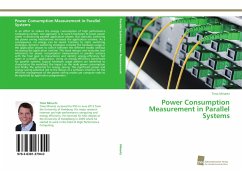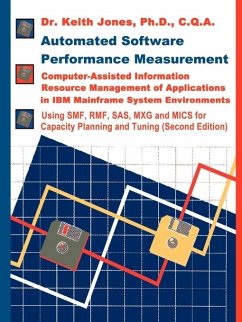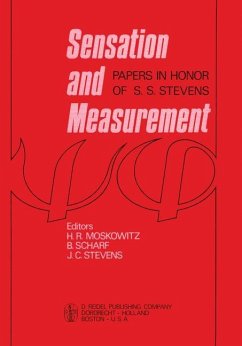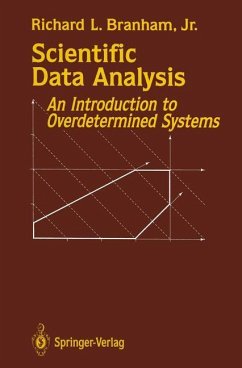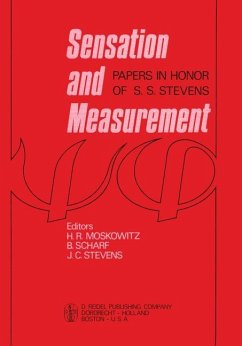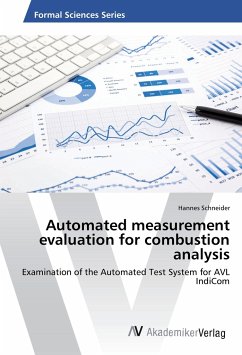
Automated measurement evaluation for combustion analysis
Examination of the Automated Test System for AVL IndiCom
Versandkostenfrei!
Versandfertig in 6-10 Tagen
19,99 €
inkl. MwSt.

PAYBACK Punkte
10 °P sammeln!
The development of new software or new features for software applications requires an accurate inspection of the compliance to the quality standards. Modifications of the software can lead to new bugs and malicious side e ects as well as to failing the desired requirements. To work against such regressions, automated test systems are used during software development. Such systems often have a high complexity and have to be customized to the needs of the application. Regression testing plays a major role for the maintenance and is a critical success factor for most software projects. The softwa...
The development of new software or new features for software applications requires an accurate inspection of the compliance to the quality standards. Modifications of the software can lead to new bugs and malicious side e ects as well as to failing the desired requirements. To work against such regressions, automated test systems are used during software development. Such systems often have a high complexity and have to be customized to the needs of the application. Regression testing plays a major role for the maintenance and is a critical success factor for most software projects. The software development process of the combustion analysis program "AVL IndiCom" applies such an automated testing solution. However, practice has shown that the constant evaluation and maintenance of the results leads to a high e ort. This work reveals the weakness of this system and shows how improvements to the automation can be implemented.






